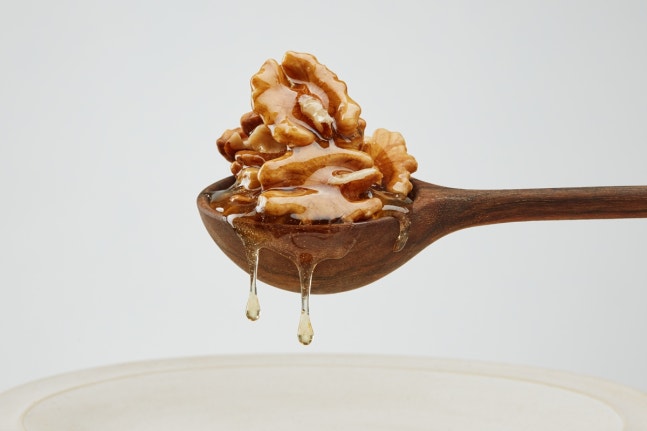
Le cœur est un organe extrêmement important en soi, mais il doit également être protégé et entretenu pour la santé globale du corps. En maintenant une bonne santé cardiaque, on peut réduire le risque de maladies coronariennes, de maladies cardiaques, d'accidents vasculaires cérébraux, d'infarctus du myocarde et de démence, entre autres avantages. Le média américain spécialisé dans la santé, 'HealthDay', a présenté les cinq aliments les plus bénéfiques pour la santé cardiaque, en se basant sur le 'Guide alimentaire pour les Américains' publié par le Département de l'agriculture des États-Unis (USDA). Découvrez lesquels ils sont.
L'huile d'olive, connue pour ses qualités saines, aide à préserver la santé cardiaque. Selon l'American Heart Association (AHA), l'huile d'olive contient principalement des acides gras monoinsaturés parmi les huiles végétales, ce qui est bénéfique pour le cœur. Les acides gras insaturés réduisent le mauvais cholestérol LDL et augmentent le bon cholestérol HDL, ce qui est efficace pour prévenir diverses maladies cardiovasculaires. En fait, une étude de la Harvard T.H. Chan School of Public Health indique que les personnes qui consomment plus d'une cuillère à soupe d'huile d'olive par jour ont un risque de développer des maladies cardiovasculaires inférieur de 15 % à celui des personnes qui n'en consomment pas. Étant donné la forte teneur en matières grasses de l'huile d'olive, il est conseillé d'en consommer entre 1 et 3 cuillères à café par jour.
Les haricots noirs sont considérés comme un « super aliment » en raison de leur haute densité nutritionnelle et de leur richesse en protéines. Le Centers for Disease Control and Prevention (CDC) affirme que les haricots noirs, riches en fibres, aident le corps à maintenir un taux de cholestérol sain et à réduire le risque de maladies cardiaques. Le Département de l'agriculture des États-Unis recommande également de consommer environ 1 à 3 tasses de haricots par semaine. Les variétés à faible teneur en sodium peuvent particulièrement contribuer à la santé cardiaque. De plus, la « lécithine » contenue dans les haricots aide à réguler le taux de cholestérol en éliminant les graisses absorbées par les vaisseaux sanguins.
Les noix aident également à protéger la santé cardiaque. Selon Harvard Health, les noix contiennent une abondance d'acide alpha-linolénique, qui est converti dans le corps en un type spécifique d'oméga-3. Les acides gras oméga-3 sont efficaces pour préserver la santé cardiaque de diverses manières, notamment en réduisant les niveaux de triglycérides dans le corps. En fait, une étude publiée dans le Journal of Nutrition Advances a révélé que, compte tenu des résultats cumulés concernant l'ALA oméga-3 et les résultats liés au système cardiovasculaire, les sources alimentaires riches en ALA devraient faire partie d'une alimentation bénéfique pour la santé du cœur.
Le saumon contient également des acides gras oméga-3 bénéfiques pour la santé cardiaque. De plus, il est riche en vitamine B6, qui aide à maintenir l'équilibre de l'acide aminé homocystéine, essentiel pour une santé cardiaque optimale. En outre, le saumon est faible en graisses saturées. L'American Heart Association recommande de consommer du saumon deux fois par semaine (85 g) pour réduire le risque de maladies cardiovasculaires et d'AVC. En réalité, une étude nationale a montré que les personnes qui consommaient régulièrement des produits de la mer riches en oméga-3, comme le saumon et le maquereau, avaient un taux d'incidence cumulée de maladies cardiovasculaires inférieur sur une période de dix ans.
Le quinoa est une céréale d'Amérique du Sud riche en fibres et sans gluten. Selon le National Institutes of Health (NIH) des États-Unis, le quinoa contient à la fois des antioxydants et les neuf acides aminés essentiels. Les antioxydants et les acides aminés aident à protéger, réparer les cellules et réduire le risque de maladies. Les fibres du quinoa abaissent le cholestérol et la pression artérielle. En fait, une étude publiée dans le Journal of Plant Therapeutics Research a montré que les personnes consommant du quinoa ont des niveaux plus faibles de facteurs de risque majeurs pour les maladies cardiovasculaires, tels que le poids et le LDL. L'American Heart Association recommande de consommer au moins trois portions de grains entiers comme le quinoa par jour.
huile d'olive
haricot noir
noix
saumon
quinoa